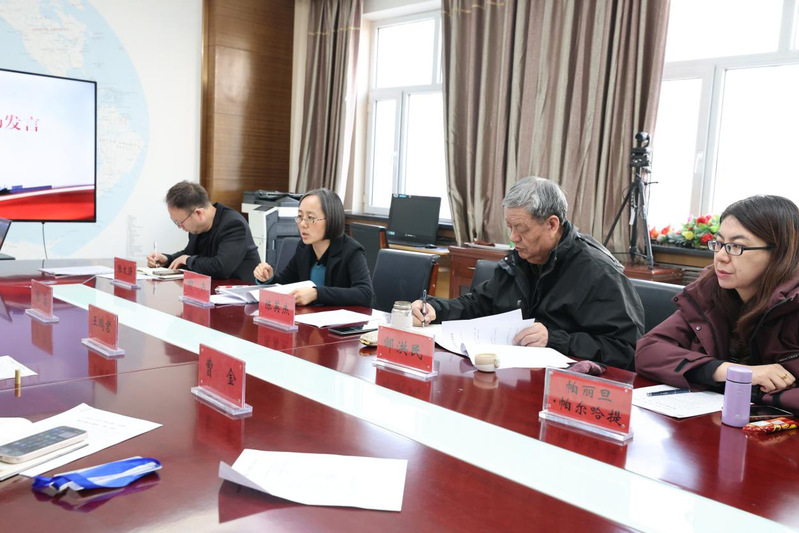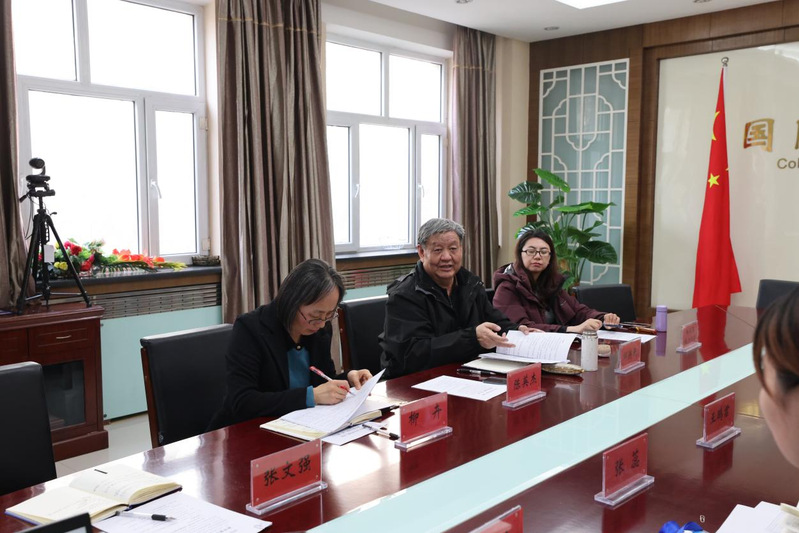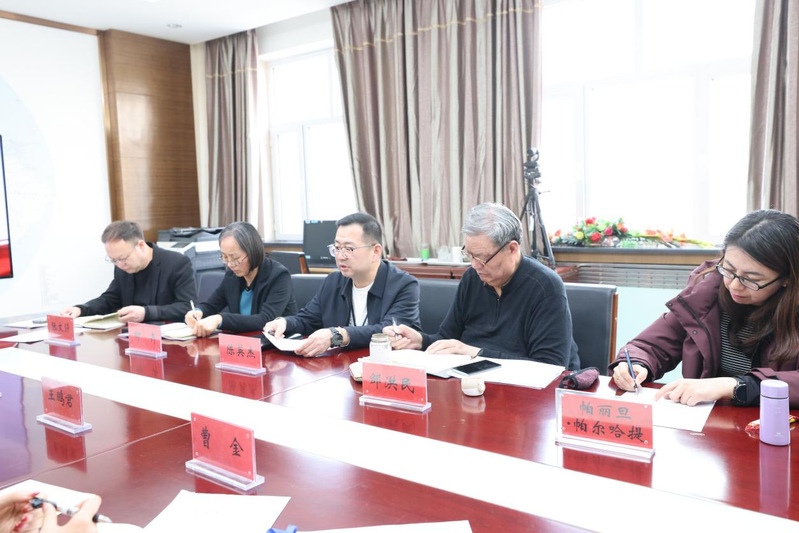To deepen the construction of the teaching quality monitoring system, the College of International Education convened its second teaching supervision work meeting for the second semester of the 2024–2025 academic year on March 28, 2025. The meeting was attended by Professor Zou Hongmin, a university-level teaching supervisor, and all members of the College of International Education’s supervision group. This meeting focused on two core agendas—comprehensively reviewing the implementation of teaching supervision work in March and systematically planning key tasks for April—the meeting aimed to continuously enhance the quality of international talent cultivation.

During the meeting, Vice Dean Liu Hui systematically summarized the teaching supervision efforts in March and outlined priority tasks for the next phase. She emphasized the standardized full-process supervision as a driver and underscored the dual objectives of optimizing teaching procedures and elevating educational quality. Key measures included holding monthly specialized analysis meetings to evaluate outcomes and diagnose challenges. Five critical dimensions were highlighted: advancing preparatory graduate qualification reviews, strictly managing examination design and administration, exploring pathways for incubating teaching-research projects, refining a tiered teacher training system, and constructing a multidimensional teaching quality evaluation framework. Vice Dean Liu urged attendees to anchor their efforts in the essence of education, cultivate excellent educational spirit, and synergize humanistic values with pedagogical quality improvement.

Professor Zou Hongmin, the university-level supervisor, provided targeted feedback on classroom observation evaluations conducted in March of the second semester of the 2024–2025 academic year. His analysis spanned two dimensions:
Faculty Performance: teachers of professional courses demonstrated logically coherent knowledge frameworks and Russian language teachers enhanced classroom engagement through dynamic language expression, issues such as loose connection of teaching module, fragmented knowledge presenting, inconsistent documentation standards, and insufficient lesson design were noted. Recommendations included refining lecture notes and strengthening instructional design.
Student Engagement: Overall classroom discipline showed marked improvement, with reduced instances of students leaving seats or disengaging. However, cases like inadequate pre-class preparation, low responsiveness and low correct rate during Q&A sessions still exist.

In closing, Dean Chen Yingjie underscored the imperative of adopting a problem-oriented, data-driven approach, which can holistically elevate the College of International Education’s educational quality and essence.